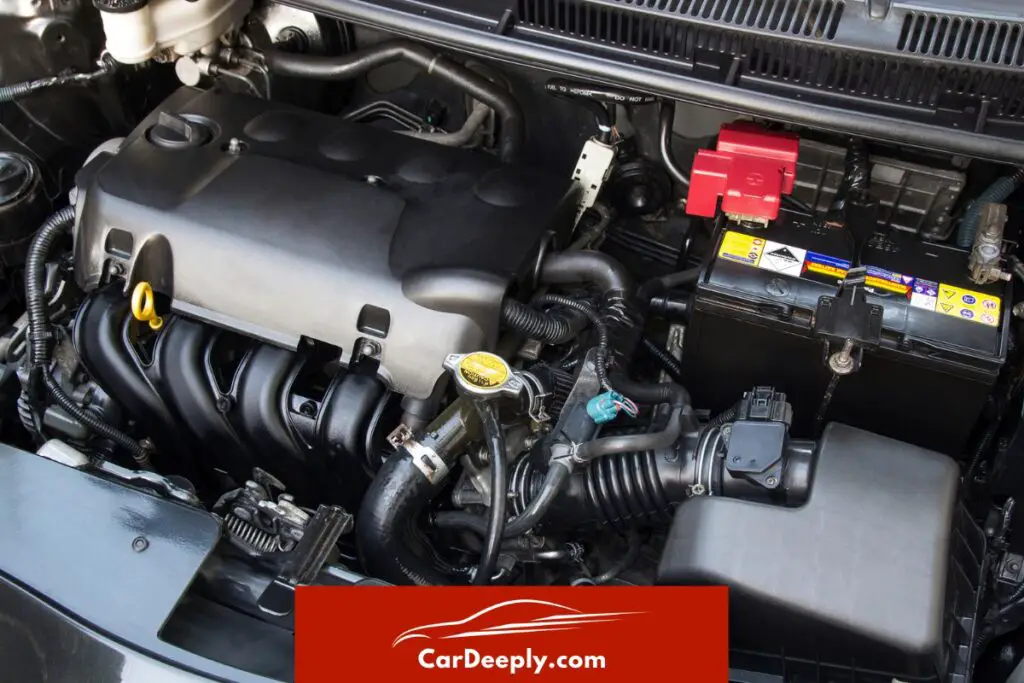Both 5.0 and the 5.4L engines are solid, reliable, and overall good engines.
There are quite some differences, about which we will talk about in the next few paragraphs.
In this article, you will find out what is the difference between the F-150 5.0 and the 5.4. Let’s get right into it.
Advertising links are marked with *. We receive a small commission on sales, nothing changes for you.
Key Takeaways

- Both engines are strong and reliable.
- Common problems in 5.0 are rattling noises, rough running, faulty spark plugs, coolant leaks, head gasket oil leaks, engine knocking, and more.
- Common problems in 5.4 are spark plug problems, engine vibrations and shaking, fuel pump failure, and more.
Ford F-150 5.0L Overview
The 5.0L V8 Ford Coyote engine powers the Ford F-150 pickup truck and the Ford Mustang GT from 2011 to 2020.
Ford has made several platform improvements, and modifications since the Coyote engine was first introduced. The Gen 3 version had the most significant upgrades in 2018 when a new dual fuel system with direct-port and port fuel injection was introduced.
The Coyote Mustang engine produces higher horsepower overall, but the Coyote truck engine is tuned for torque.
There are three generations. There are Ford Mustang and Ford F-150 versions of the engine in each generation, with only minimal variations between them.
The first one, the Coyote 5.0L engine, consists of 2011 to 2014 Mustangs and 2011 to 2014 F-150s.
The second generation of the Coyote 5.0L engine consists of 2015 to 2017 Mustangs and F-150s.
Lastly, the third generation of Coyote 5.0L engine consists of 2018 to 2020 Mustangs and F-150s.
Each Coyote generation improved horsepower, torque, and even rpm capabilities.
Ford F-150 5.4L Overview
Full-size trucks and sport utility vehicles like the Ford F-150, Ford Expedition, and Lincoln Navigator are powered by the 5.4-liter Triton V8 engine from Ford Motor.
The Ford Triton architecture, which features a single (SOHC) or dual overhead cam (DOHC) design and is configured in a V, has been a member of the Ford Modular family since 1997.
Although this engine was initially intended to power large trucks and SUVs, it has also been adapted to power sports vehicles like the Ford GT, Ford Mustang Cobra R, and Ford Shelby GT500.
It was included among the top 10 engines for 1997–1998 and 2000–2002 on Ward’s 10 Best Engines list when it was initially made available in a SOHC design.
Ford introduced a 3-valve SOHC design the next year and continued using it until 1999, when it switched to a 4-valve dual-overhead-cam design. The revised arrangement enhanced both total performance and fuel economy.
This engine is in the Ford Expedition, Navigator, Mustang, Blackwood, E-Series, Falcon, GT, and F-150.
Engine In F-150: 5.0L Vs. 5.4L
Here we will discuss the 5.0 and the 5.4 engines.
Engine In 5.0L
A 5.0-liter engine is a naturally aspirated V8Coyote engine.
It is an atmospheric, V configuration, 8-cylinder, longitudinal engine with dual overhead cam with variable camshaft timing.
Its predecessor is the Ford 4.6L V8. However, there is no current successor.
The maximum power is 460 @ 7,000, and the maximum torque is 420 @ 4,600 rpm.
Engine In 5.4L
A 5.0-liter engine is a naturally aspirated V8 Coyote engine.
It is an atmospheric, V configuration, 8-cylinder, longitudinal engine with single overhead cam/dual overhead cam.
Its predecessor is Ford 4.6L V8, and its successor is Ford 5.2L Voodoo/Predator.
The maximum power is 550 @ 6,500 rpm, and the maximum torque is 500 lb-ft @ 3,750 rpm.
Common Problems In F-150: 5.0L Vs. 5.4L
Here we will discuss the most common problems that occur in these engines.
Keep reading to find out about the problems you might encounter with these engines!
Common Problems In F-150 5.0
Some Ford F150 5.0 engine problems are common. Those include rattling noises, rough running, faulty spark plugs, coolant leaks, head gasket oil leaks, engine knocking, engine stalling, throttle body issues, and more.
For instance, if the rattling sound mentioned above persists for a long time, the timing chain’s tension may slack, resulting in the engine running out of time.
For example, coolant leaks are another typical engine issue affecting thousands of F150 pickup trucks. A plastic “T” connection is the cause of these leaks. This connector combines an O-ring with a threaded connection to create a seal. Unfortunately, with time, the connection deteriorates, which causes a coolant leak.
There are, as said in the beginning, a lot more problems. However, there is a solution to everything, so no worries!
However, that doesn’t mean that this is a bad engine. Every car has its issues, and often the same as this one.
Let’s look at the 5.4L engine issues.
Common Problems In F-150 5.4
For the 5.4L engine, the frequent issues include spark plug problems, engine vibrations and shaking, and fuel pump failure. Those are only just some of the issues.
One of the most frequent concerns is that some Ford F-150 vehicles, particularly 2004 F-150, have spark plug issues with this engine layout.
Ford’s 5.4L V8 engine, offered in the 2005 Ford Expedition, was also known to cause front-end vibrations and shaking. In 2017, one owner complained to the NHTSA about how the car rattles significantly when traveling at highway speeds.
Moreover, the fuel pumps in Ford’s 5.4L V8 engine have occasionally had problems, especially in the 2006 Ford F-150.
The owner of a 2006 F-150 asserts in a different complaint submitted to the NHTSA in 2014 that the truck stalled and needed to be towed to a dealer. The dealer examined it and discovered the fuel pump module was rusted and fractured. The owner surmises that a subpar design was at blame.
Conclusion
There you go! The comparison of the two engines based on their common problems, their engine characteristics and their general overview.
Both of these are reliable and good, strong, dependable engines. For which one are you opting?

Luna Meschiari is a full-blooded car nut who is well known to local garages, as each article is meticulously researched and peppered with the latest piece of information. Guess what car she’s driving right now? A RAV4 2021 Hybrid. But her heart also sleeps for pickups like the F-150. Get to know Luna better on the about us page.
Advertising links are marked with *. We receive a small commission on sales, nothing changes for you.

